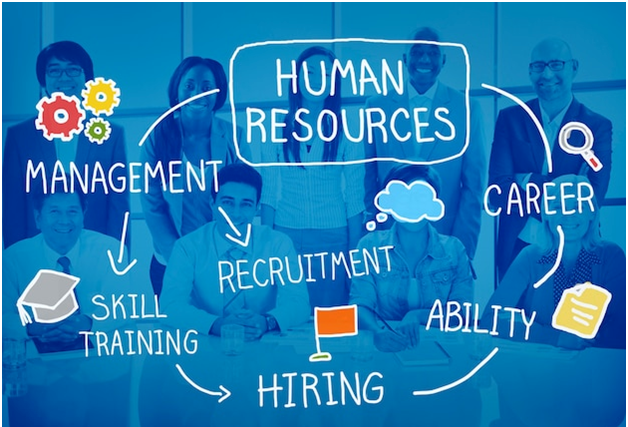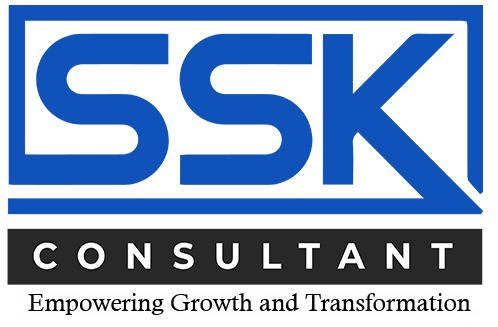Are HR Consultants in Demand

Competition is fierce today, businesses are constantly pushing to become more efficient and to stay compliant. The role of Human resources (HR), a recognized significant part of this pursuit, comes into the picture, considering its role in handling talent, linking employees' performance to businesses' objectives, and managing legal compliance. With companies understanding the importance of their workforce in their strategic roadmap, the need for HR consultants has steadily risen. But why are there so many HR consultants on demand and what do they do to assist businesses to thrive? In this blog, let’s dig into what is driving demand for HR consultants and why they could be valuable to the organization of today.
In Modern Business the Role of HR: Evolving
An imaginative trait of traditional HR was that it was seen as an administrative function mainly controlling recruitment, payroll, and compliance. However, with the change in the business environment into a dynamic and competitive one, the role of HR has also broadened. They are now required to assist in the strategic decision-making of a company, creating its culture, managing employee development, and making sure things stay in line with ever-changing labor laws. For many companies, especially the small to mid-sized ones, the in-house HR teams may not have the resources or the ability to address these newly emerging responsibilities adequately. And this is where HR consultants come in. In this endeavor, they offer expertise in talent management, organizational development, employee engagement, change management, and more, to help a business deal with challenges and make the most of the opportunities.
Demand Drivers of HR Consultants
The demand for HR consultants has increased and several trends are responsible for that, both in established businesses and in emerging enterprises. The trends reflect how the expectations and requirements of the business world in a complex and dynamic environment are evolving.
1. Getting through the regulatory changes and compliance
The ever-changing regulatory landscape is one of the primary reasons companies look to HR consultants for help. The laws around labor and employment are a moving target and businesses are having a hard time keeping up. Not complying can incur fines and lawsuits with damage to reputation. Some HR consultants are compliance specialists and help organizations remain abreast with the latest regulations. As well as drafting company policies, they help businesses ensure employment contracts are legally sound and provide counsel regarding, for example, employee classification, overtime pay, and workplace safety. With their experience, a business can ensure that it is running within the legal framework and there is less risk of legal complications.
2. Workforce Restructuring and Organizational Change
Complex HR difficulties often arise from organizational restructuring, mergers, & acquisitions. These transitions range from integrating teams to redefining roles to even managing layoffs and can disrupt business operations, and adversely, impact employee morale. Transitioning such important changes is possible with the help of HR consultants.

In conjunction with workforce restructuring plans that companies implement, they provide employee assessments as well as strategies geared toward mitigating disruption. Moreover, HR consultants help businesses support their staff through change management processes during periods of uncertainty, and achieve successful organizational change.
3. The intersection of Talent Acquisition and Retention.
Attracting and keeping the cream of the crop in today's competitive job market has become that much harder. Therefore organizations need to be proactive and come up with a recruitment strategy that will make them stand out by offering an exciting employee value proposition. Recruitment specialists as HR consultants can assist in developing recruitment processes, writing efficient job descriptions, and using the latest instruments and cutting-edge the technologies for selection of the best candidates. Additionally, they may assist organizations in talent retention and can offer recommendations toward employee engagement programs, surveying workforce sentiment, as well as talent retention and job satisfaction improvement initiatives. Businesses can benefit from their insights, reduce turnover rates, and create a culture of loyalty and commitment to their staff.
4. It was DEI Initiatives.
Many organizations now realize that diversity, equity, and inclusion are real and necessary to become a great organization with different perspectives and diversity of experiences brought to the table. But just hiring people from all sorts of different backgrounds and making that environment inclusive isn’t enough because you need a cultural shift inside the organization. There’s a high demand for HR consultants who can assist organizations in creating and acting on DEI strategies. Using national benchmark data, we can determine the nature of current practices, identify areas for improvement, and design programs that can enhance inclusivity and reduce bias. A diverse and inclusive workplace not only improves a business’ reputation, but also the company’s ability to innovate, create, and employee happiness.
5. Employee Performance Management and Employee Development
Whatever industry one finds himself or herself in, investing in employee development means keeping the edge. Organizations that put employee growth first tend to have higher retention rates and better performance, their workforce is a more motivated lot. Nonetheless, creating useful training and development programs can be tricky, particularly for small companies that have small sums of cash to pass.

The services of an HR consultant provide expertise in the creation of employer development programs, including leadership, technical, or soft skills development. They also help in fielding performance management systems which measure how employees’ goals match with the organization’s strategic objectives and how feedback is constructive and transparent.
The Freshers Guide to the Rise of the Gig Economy and Remote Work
The increasing presence of the gig economy and the remote work format is also promoting an increasing demand for HR consultants. More flexible employment arrangements, with companies employing workers online, full-time, part-time, freelancers, contractors, or remotely, are replacing the traditional full-time employment model. While flexibility allows organizations to benefit from this approach, the challenge for HR is increased. Companies that want to keep up with change must utilize HR consultants who are capable of advising on the management of remote workforce, proper classification of gig workers, and the creation of policies that sufficiently address the specific needs of non-–non-traditional employees. In addition to that, they can be used to develop virtual onboarding programs and support the company’s culture though employees are located away from each other.
How HR Consulting Relies on Technology
The world of HR has changed thanks to technology, from recruitment to performance management. It’s only expected that HR consultants are also to be up to date with the latest HR tech solutions such as human capital management (HCM) systems, applicant tracking systems (ATS), and employee engagement platforms. Equipped with technology, HR consultants can offer data-driven insights and tools that simplify HR processes, enrich employee experiences, and increase efficiency in general. Therefore, businesses look for consultants capable of overcoming the difference between ordinary HR practices as well as present-day technological upgrades, to preserve their companies together with a favorable opinion.
A Field with Endless Potential For Growth
Unfortunately, we don’t see the need for HR consultants decreasing anytime soon as organizations continue to deal with complex challenges such as compliance, talent management, and organizational change. With businesses sensing the importance of having a strategic take on their HR needs, consultants with competence in compliance, diversity, employee improvement, and technology will be very much sought after. It’s an exciting time to get into an HR consulting career one of the professionals in the domain think. The role is a chance to make a real difference for businesses, the culture of an organization, and the overall success of that organization. HR consultants will continue to be essential partners to companies that wish to flourish in an ever more challenging and competitive world of work.

